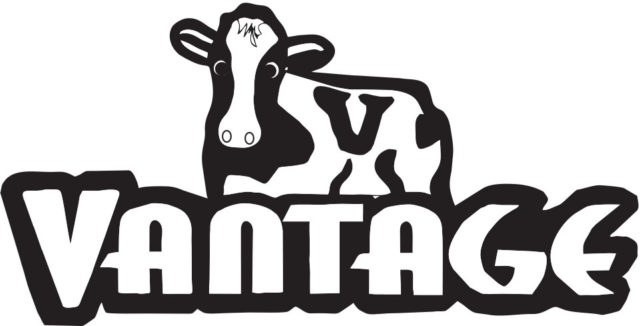It’s not difficult to find discouraging statistics related to American agriculture. According to the National Farmers Union, the producer’s share of each dollar spent on food fell from 50% in 1952 to less than 16% today. Over the last 10 years, the U.S. has lost 17,000 dairy farms. This same decade has seen record low prices, milk frequently dumped and fewer choices where farmers can sell what they make or buy what they need. Sometimes it feels like every headline about farming contains the word “crisis.”
Nearly every farmer agrees change is needed. Having faced an industry that has been difficult for years, however, it’s easy to understand why many American producers feel resigned to worsening conditions. However, there are groups currently working toward an agricultural system that is better to its farmers. They may have a daunting task in front of them, but nothing gets done without someone stepping up to the challenge. Here are brief descriptions of five movements happening right now in U.S. farming.
Dairy Together
In 2018, the Wisconsin Farmers Union began actively looking for ways to improve the dairy market. With farms under 2,000 cows going out of business every day and the 2015 price collapse still fresh in everyone’s memory, they reached out to farmers and organizations across the country to find ways to curb overproduction and keep the industry viable. This led to Dairy Together. In 2019, they held meetings with family farmers across the country and sought ideas on how to keep supply and demand in balance.
Believing that the “get big or get out” attitude to American agriculture has run its course and that both farmers and the public want a different approach to the food system, the Dairy Together movement is working toward fair growth management that will be responsive to the market, raise and stabilize prices, and allow new entry into the sector by beginning farmers. Dairy Together is pushing for these changes to be made in the 2023 Farm Bill.
Website: Dairy Together
Fairness for Farmers
In a video announcing their campaign, the National Farmers Union points out that four firms control 85% of seed corn production, four multinationals control 84% of the global pesticide and herbicide market, and 95% of large tractors are made by three companies. They argue that consolidation in agriculture has cut farmer profits, depopulated rural areas, led to higher consumer prices and reduced food security.
In particular, the Fairness for Farmers campaign is looking to achieve four objectives: strengthen and enforce the Packers and Stockyards Act (PSA), improve price discovery and transparency in agricultural markets, increase competition by creating more diverse market opportunities and reinvigorate antitrust enforcement. As a response to the campaign, the USDA has created an online portal where farmers can file a complaint or tip if they suspect a violation of the Packers and Stockyards Act or anti-competitive practices by a corporation.
Website: Fairness for Farmers
The One Million Acres Campaign
With the target of influencing the 2023 Farm Bill, the National Young Farmers Coalition is seeking more equitable entry to land ownership in the future. “Access to land is the number one challenge facing the next generation of farmers in the United States, and this barrier is even greater for farmers of color,” asserts Sophie Ackoff, co-executive director of Young Farmers. According to the organization, the state of American agriculture is at stake because it is difficult for new farmers to secure land and enter the industry. For that reason, the coalition is asking Congress to invest $2.5 billion over 10 years in the 2023 Farm Bill to facilitate equitable access to 1 million acres of land for the next generation of farmers.
Website: The One Million Acres Campaign
Michelob Ultra’s Contract for Change
A farmer sits in his kitchen and stares at the camera. “Most farmers would love to grow natural food again, but we’re on a treadmill that we can’t get off of,” he says. So starts the commercial introducing Michelob Ultra’s Contract for Change. The project won top honors at the Cannes Lions festival for its creativity and game-changing scope.
Contract for Change is the beer company’s effort to transform more farmland into organic practices. The commercial explains that it takes three years to convert to organic, as well as significant investment and suffering through diminishing yields. Michelob Ultra promises to be the first buyer of organic grain at the end of those three years, as well as buy the yield during the three-year transition at 25% over the market value. To date, they have encouraged an additional 100,000 acres to be put into organic production.
Website: Michelob Ultra’s Contract for Change
The Campaign for Family Farms and the Environment
The Campaign for Family Farms and the Environment (CFFE) is focused on providing advantages for smaller farms and discouraging support for practices that lead to pollution by factory farms. In the 2018 Farm Bill, the six-body coalition successfully removed Environmental Quality Incentives Program (EQIP) funding for factory farms, as well as guaranteed USDA loans for new or expanding large farms. Currently, CFFE is focused on state policies that provide specific advantages in Minnesota, Iowa, Missouri and South Dakota. The alliance consists of the Missouri Rural Crisis Center, Iowa Citizens for Community Improvement, Dakota Rural Action, Land Stewardship Project, Food & Water Watch, and the Institute for Agriculture and Trade Policy.
Website: The Campaign for Family Farms and the Environment
All of the organizations behind these efforts suggest that American agriculture is at a crossroads. Above is how they decided to respond. If you agree with what any of them are doing, you may want to take a closer look. More information for these movements, as well as how you can lend your support, can be found on their websites.
Ryan Dennis is the author of The Beasts They Turned Away, a novel set on a dairy farm. His website is Dennis Ryan




